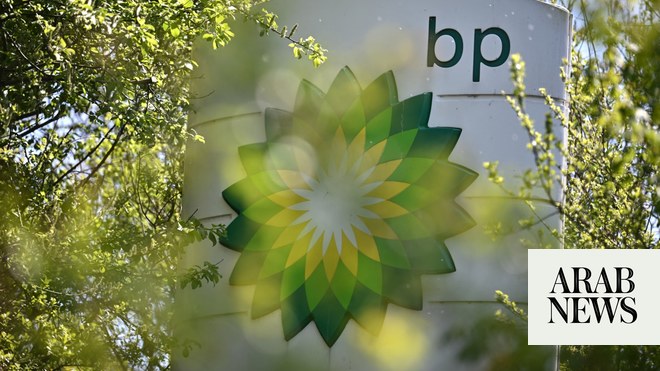
Hussein Julood says practice of flaring in Rumaila oil field caused Ali’s leukemia
‘I am also representing those poor people living here and suffering from pollution’
London: An Iraqi father has launched legal action against British oil giant BP after his son died of leukemia allegedly as a result of flaring, the BBC reported on Tuesday.
Ali died aged 21 last year because a local BP-run oil field had practiced flaring, the burning off of gas, his father Hussein Julood has alleged.
The village where Ali grew up, which lies within the boundaries of the oil field, contained high levels of carcinogenic pollutants that are linked to flaring, a BBC investigation in 2022 showed.
Julood’s case is believed to be the first instance of individual legal action against an oil firm over the practice of flaring.
In a claim letter, he argues that “toxic emissions from the Rumaila oil field” led to Ali’s leukemia and subsequent death, and that as the lead contractor of the site, BP holds partial responsibility.
Julood is demanding compensation for his son’s lengthy medical treatment, which included overseas trips, as well as for loss of earnings, funeral costs and “moral losses.”
He told the BBC: “I am just hoping for those who hear my voice, from BP, to consider my situation. I am not representing myself alone, I am also representing those poor people living here and suffering from pollution.”
Rumaila oil field has the highest known levels of flaring in the world, according to BBC analysis of World Bank figures.
Aged only 15, Ali was diagnosed with acute lymphomatic leukemia and endured two years of treatment, including chemotherapy, a bone marrow transplant and radiotherapy.
Despite being a keen footballer and student in school, he was unable to return to classes after his treatment.
But after being declared in remission in 2021, Ali opened a local phone business and “was excited about the future.”
In 2022 he was found to be in relapse, and his father urgently tried to raise funds for experimental treatment in India, but Ali died on April 21 last year before he could make the journey.
Julood said one of the most important goals of his case is preventing regular flaring from taking place in Rumaila “so that more families did not suffer.”
He told the BBC that last year “was a very sad year for the family,” adding: “For me, his mother, and his brothers, too. Ali was an unforgettable person, he was my backbone, I depended on him in my work, my life and in everything in the house. All the days we live are sad.”
A week after Ali died, Julood addressed the BP board at the firm’s annual general meeting, demanding an end to gas flaring in Rumaila.
But in the year since, populated areas within the oil field have “seen flaring and black smoke” almost daily, he said, adding that up to four or five deaths have occurred locally due to cancer since Ali’s death.
Wessen Jazrawi, partner at Hausfeld & Co., the law firm representing Julood, said: “This is an important example of environmental litigation seeking compensation for harmful emissions from a carbon major.
“Such companies have generally been able to carry out harmful environmental practices with impunity, particularly where these occur in the Global South.”












